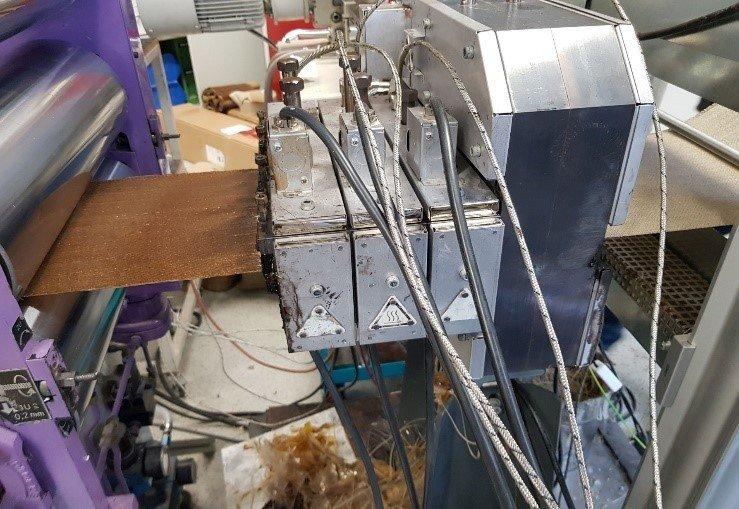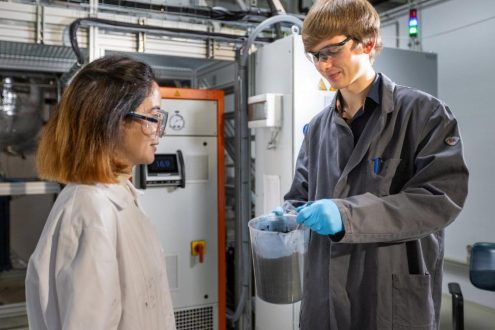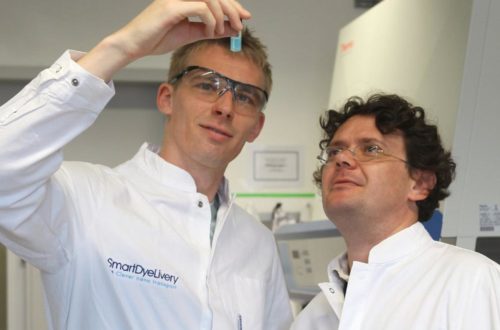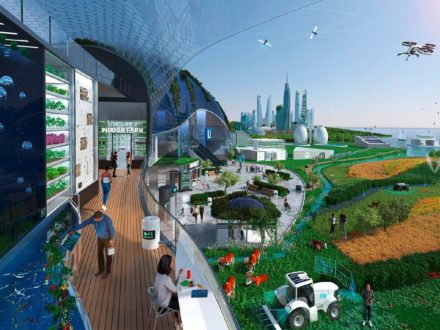
Biobased plastics for lightweight solutions
Using structure-property relationships to design bio-based plastic products.
At the heart of the project is the creation of the first ever lightweight construction process based on natural-fiber-reinforced bio-based plastics that have been specially designed for mass production. Housings for lithium-ion batteries, which find particular use in mobility-based applications, such as e-bikes or other vehicles, serve as a model system. In using them, it is hoped, in particular, that a reduction in weight relative to conventional metal housings can be achieved. Here, the cell holder, thermal management, crash safety and electrical insulation functions are to be ensured and functionally integrated using plastic housings consisting of matrices and organic sheets based on renewable raw materials. By taking this approach, a reduction in battery weight of up to 60 percent (excluding cell weight) will be possible.
This consistent focus on the use of thermoplastics as a material base opens up future prospects regarding the establishment of a circular economy and the development of recycling concepts. However, this is not part of the current project.
Using coupled analysis methods for improved structure-property relationships
The organic sheets and formed parts that are to be developed using natural-fiber-reinforced bio-based plastics can be created by combining different plastics and natural fibers, depending on the requirements of the application field. A continuous process for the manufacturing of organic sheets was achieved using an impregnation tool developed at Fraunhofer LBF. This process allows for the natural fiber to be impregnated while keeping the time during which it is in contact with the thermoplastic melt very short. With these reduced contact times, it is possible to reduce the damage to the fiber, even at higher processing temperatures.
Customer benefits
In the further course of this project, the battery housings fitted with organic sheets are to be sampled in a fully-automatic process. This is capable of significantly reducing the number of production steps relative to those required for conventional metal housings and, in turn, can significantly reduce costs. It is anticipated that, with the technology to be developed, it will also be possible to significantly reduce both the component weight and the total costs.
Fraunhofer Institut LBF
Bartningstr. 47
64289 Darmstadt
Telefon: +49 (6151) 705-287
http://www.fraunhofer.de
Shilpa Khare Fraunhofer-Institut für Betriebsfestigkeit und Systemzuverlässigkeit Schlossgartenstr.
Telefon: +49 (6151) 705-8735
Fraunhofer-Institut für Betriebsfestigkeit und Systemzuverlässigkeit
Telefon: +49 (6151) 705-8739
Presse und Öffentlichkeitsarbeit
Telefon: +49 (6151) 705-268
Fax: +49 (6151) 705-214
E-Mail: anke.zeidler-finsel@lbf.fraunhofer.de
![]()



